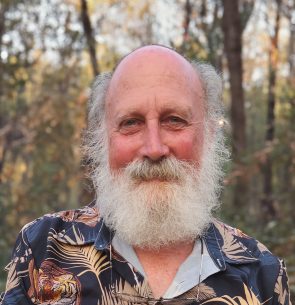
Craig Huegel
University of South Florida Botanical Gardens
Plant Curator
Author, Ecologist, Educator, Experimental Grower, & Gardener
34 years of experience with native plant education, restoration and gardening
Craig’s specialty area is the plant-animal interaction and he is well known as a state expert in the design of wildlife-attracting landscapes. Craig grows and introduces uncommonly grown wildflowers to the trade and maintains an active, in-depth online blog on native Florida wildflowers and his experience in converting a status quo residential landscape to a native dominant system. Craig is the author of multiple very popular trade books on native plant landscaping for wildlife, gardening with wildflowers and landscaping with native plants in the shade. He lectures widely across the state of Florida on the use of native plants in ecologically beneficial, sustainable landscapes.Craig was a faculty member of the University of Florida/IFAS where he co-founded the Cooperative Urban Wildlife Extension Program and established the Florida Backyard Wildlife Habitat Program. He established the Pinellas County Environmental Lands Division and served as Division Administrator for 12 years.
Craig’s entertaining speaking style and dynamic delivery will keep the foggiest participant awake and engaged. He has received numerous state and regional awards from public agencies and private conservation groups for his environmental education, restoration and preservation work.
Learn more about the University of South Florida Botanical Gardens.
B.A. in zoology and M.S. in Wildlife Ecology from the University of Wisconsin
Ph.D. in Animal Ecology from Iowa State University
Certified Wildlife Biologist with the Wildlife Society.
My Sessions
A Checklist of the Best Rarely Propagated Native Plants for Florida Landscapes
Theater
Florida has the third-highest diversity of native plants of any state in the U.S., however, only a small fraction of those are currently propagated and made available for landscape use. Some of these have little aesthetic or wildlife value while others have very restrictive growing conditions that make them difficult to provide for. That said, […]
FNGLA certified professional
READ MORE